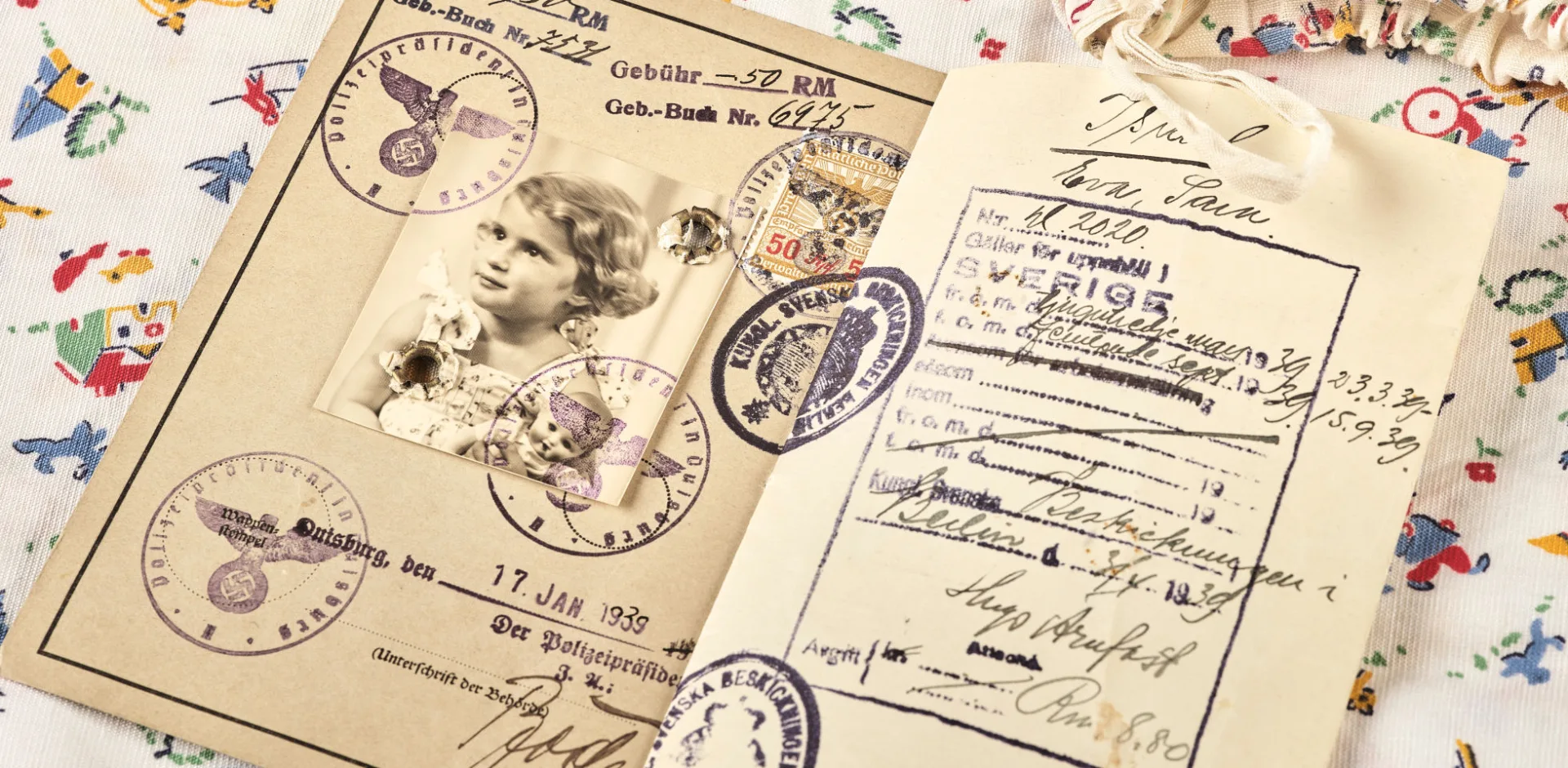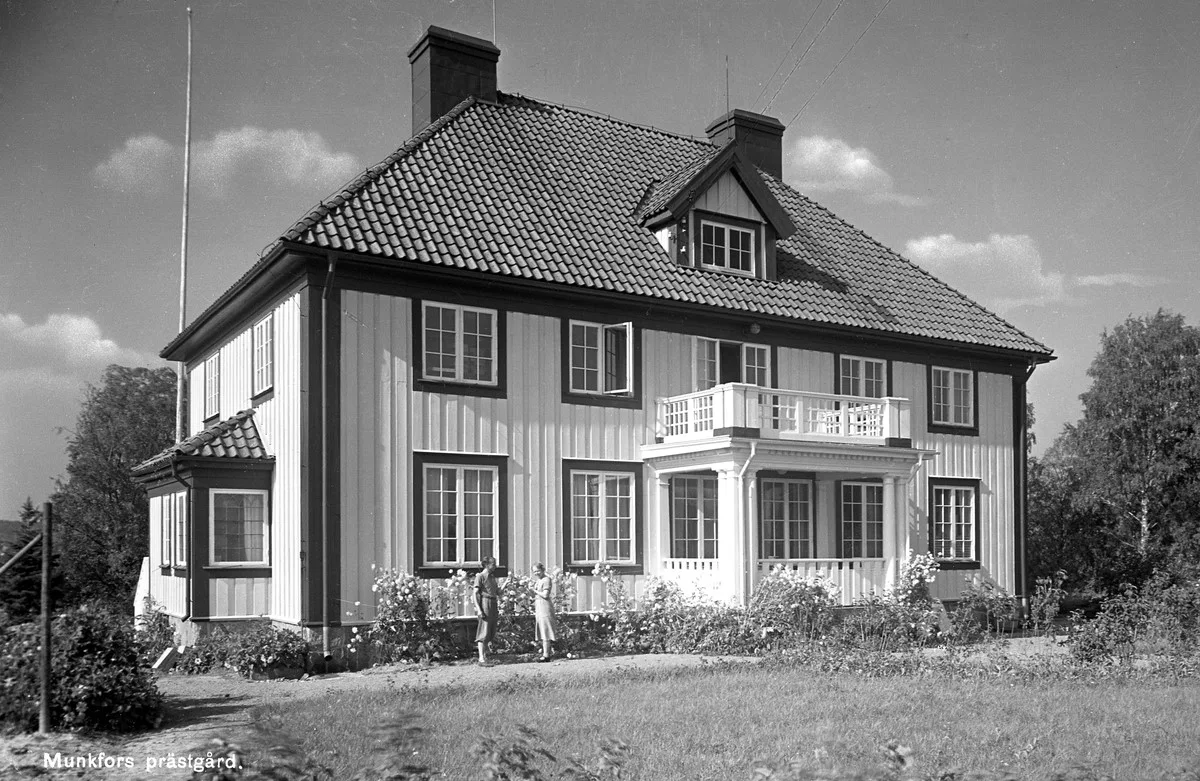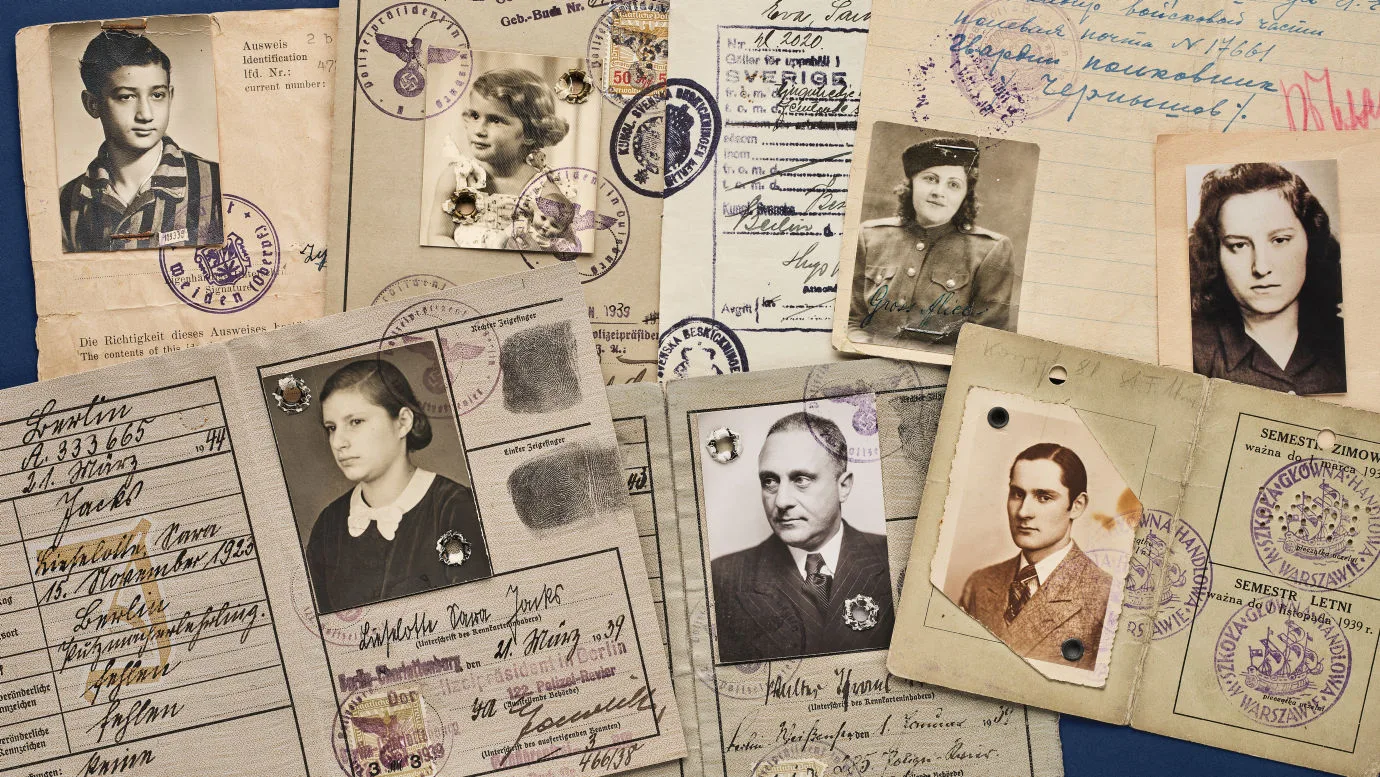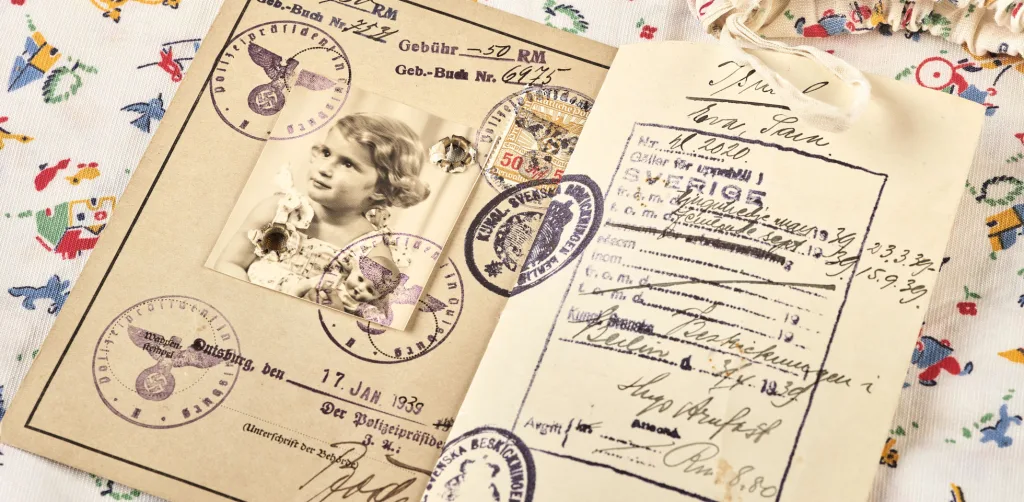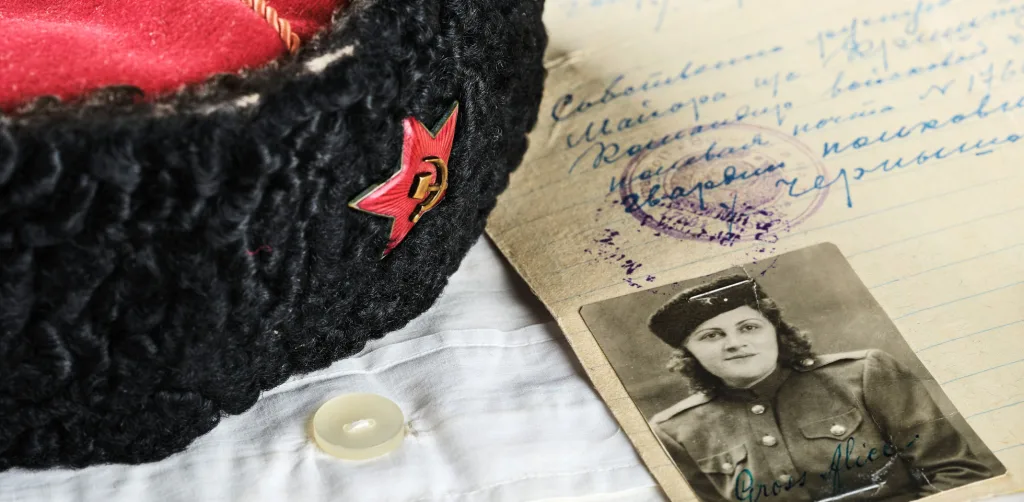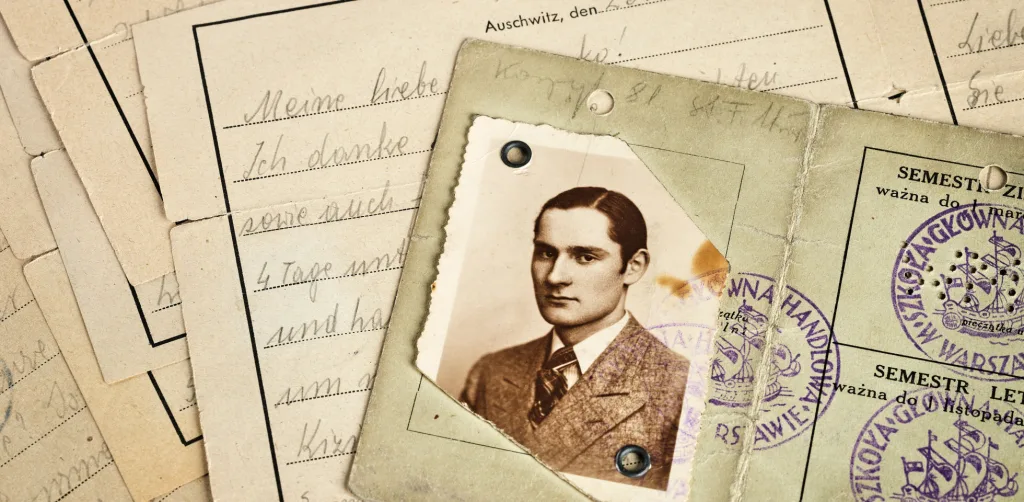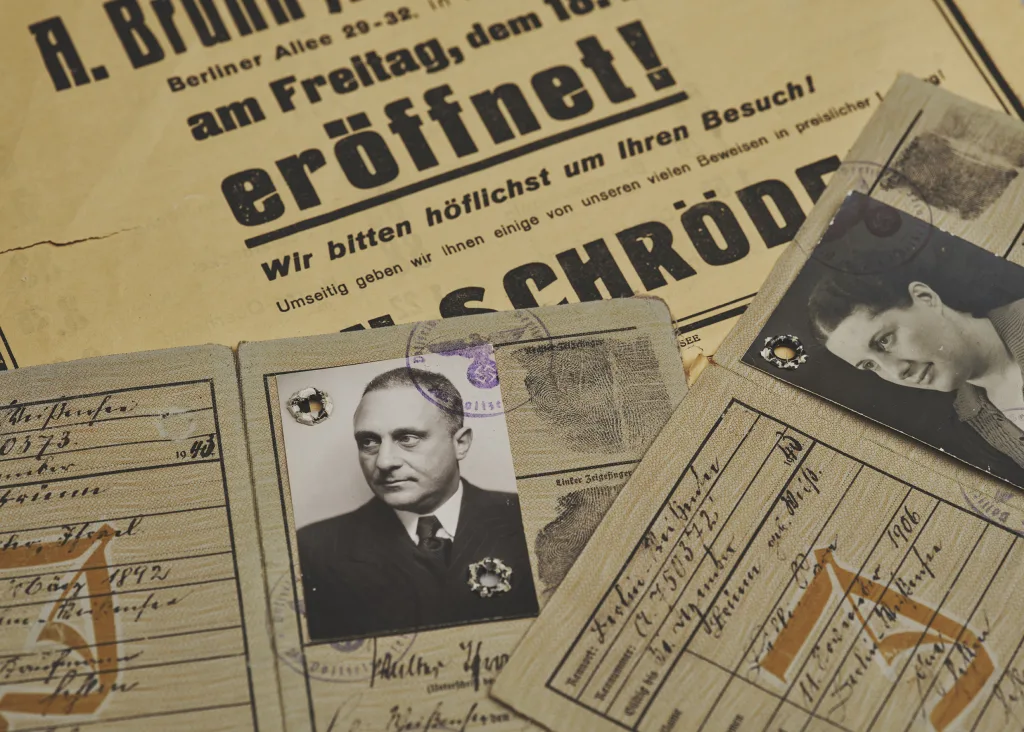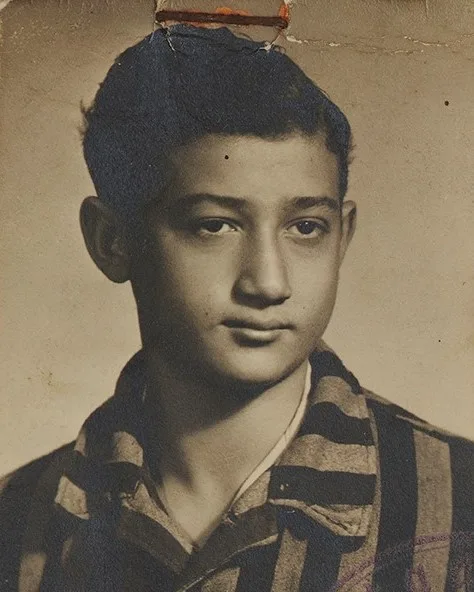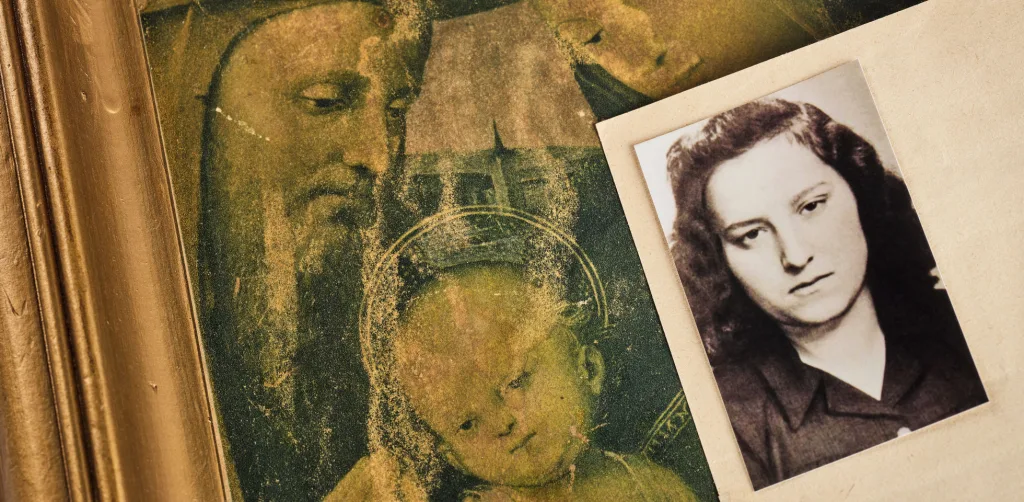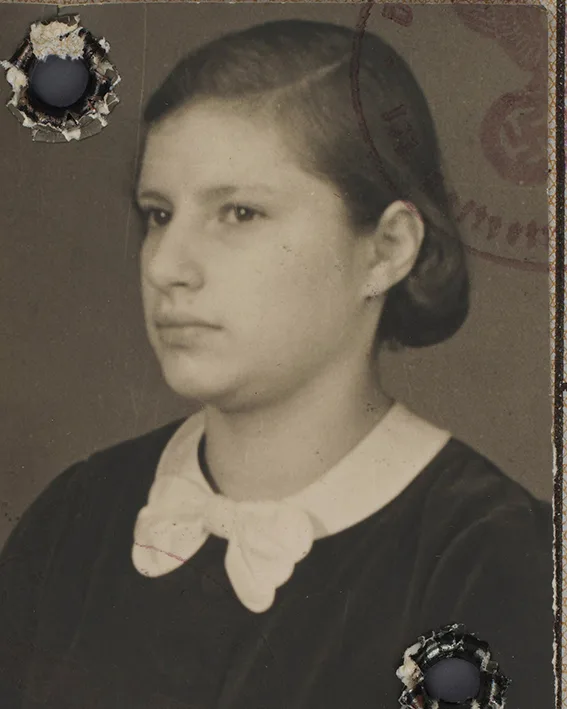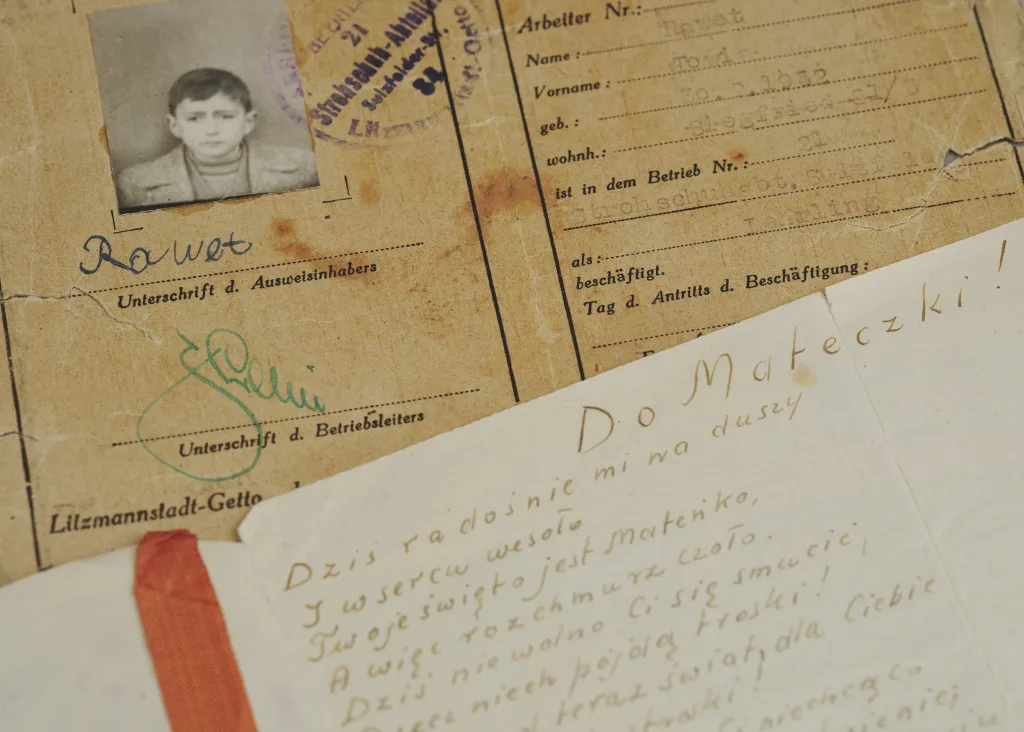Eva grew up with her family in the city of Duisburg in western Germany. She lived there with her parents and her older brother Walter. Her father Gottfried was a teacher in the Jewish elementary school and cantor in the synagogue.
One morning, SS soldiers marched into the family kitchen searching for Gottfried. He had been warned earlier and managed to hide at a friend’s. The SS men had already seized the rabbi and set fire to the synagogue. Eva, her mother Elsbeth and older brother Walter could only stand hand in hand and watch while the SS men broke apart and destroyed the family home.
Gottfried came home again a few days later. The danger was over for a while, but Eva’s parents did not dare to stay in Germany. They were waiting for an entry permit to the USA, but decided to try to escape elsewhere in the meantime. Eva and her mother Elsbeth got entry permits to Sweden, but her father Gottfried did not. They planned to reunite in the USA as soon as possible.
In May 1939, Eva and her mother arrived at the rectory in Munkfors in Sweden. Eva’s parents had made contact through a mutual acquaintance with the parish priest Einar Börjesson and when Elsbeth got work and a place to live at the rectory, she got an entry permit into Sweden. The next spring, in 1940, Eva’s older brother Walter also moved into the rectory. He had come to Sweden as part of the child quota in 1939 and to begin with he was in a children’s home near Stockholm.
Eva’s father Gottfried, who never got an entry permit to Sweden, had moved to Belgium when war broke out in 1939 and then moved on to France. There, he was interned in a transit camp in St Cyprien in southern France. Gottfried wrote letters from the camp to his family in Munkfors. He wrote about everyday life in the French camp and asked Elsbeth to describe how the children were growing and how the family was getting on.
When Eva was six, she had already started school in Munkfors. She, her mother and brother Walter had moved into their own apartment. Elsbeth worked in various households and taught German, French and mathematics and gave violin lessons. Her father Gottfried had been moved to another camp in France and was still writing letters to his family. In a letter dated 28 July 1942, he wrote from the St Cyprien internment camp and described that he was working at planting tomatoes and maize. He asked how the children were growing and what they were doing about clothes. He also asked Elsbeth to make new contacts to try and get him work and thereby a residence permit in Sweden. “We have to try everything,” he wrote.
Then the letters from Gottfried stopped coming. In December 1942, a message came from the French Red Cross: Mr. Gottfried Israel has left Camp de Gurs for an unknown destination together with many other internees.
When the war ended, Eva was nine years old and was living with her mother Elsbeth and older brother Walter in an apartment in Munkfors. Eva moved to Karlstad when she was to start upper secondary school and then later to Lund to continue her studies. She met her husband to be in Lund and they married in 1959. Eva worked as a psychiatrist and company doctor throughout her professional life. Today she has four children and eight grandchildren and lives in Skåne.
Gottfried Israel
When the war ended, all the family knew was that Eva’s father Gottfried had been moved from the internment camp at Gurs in southern France in August 1942. Elsbeth continued to write to various aid organisations, asking after him. In December 1945, a message arrived from the department for investigations at the World Jewish Congress with information about Gottfried. He had been deported directly from Drancy in France to Auschwitz on 10 August 1942. That was the last trace of him. In 1962, Elsbeth received word from Germany that the district court in Duisburg had declared that Gottfried was dead.
Eva's story
Eva has given her account of events to the Swedish Holocaust Museum and given objects, documents and letters to the museum’s collection.
Sources
- Museum collections.
